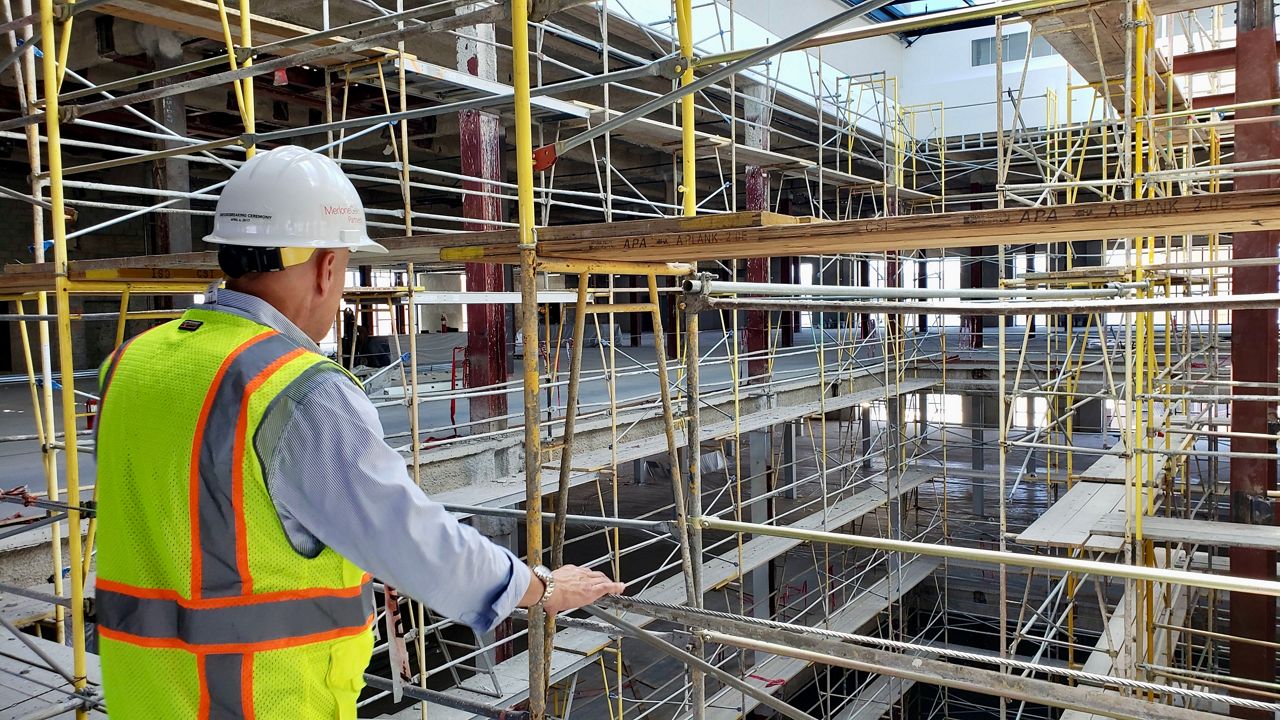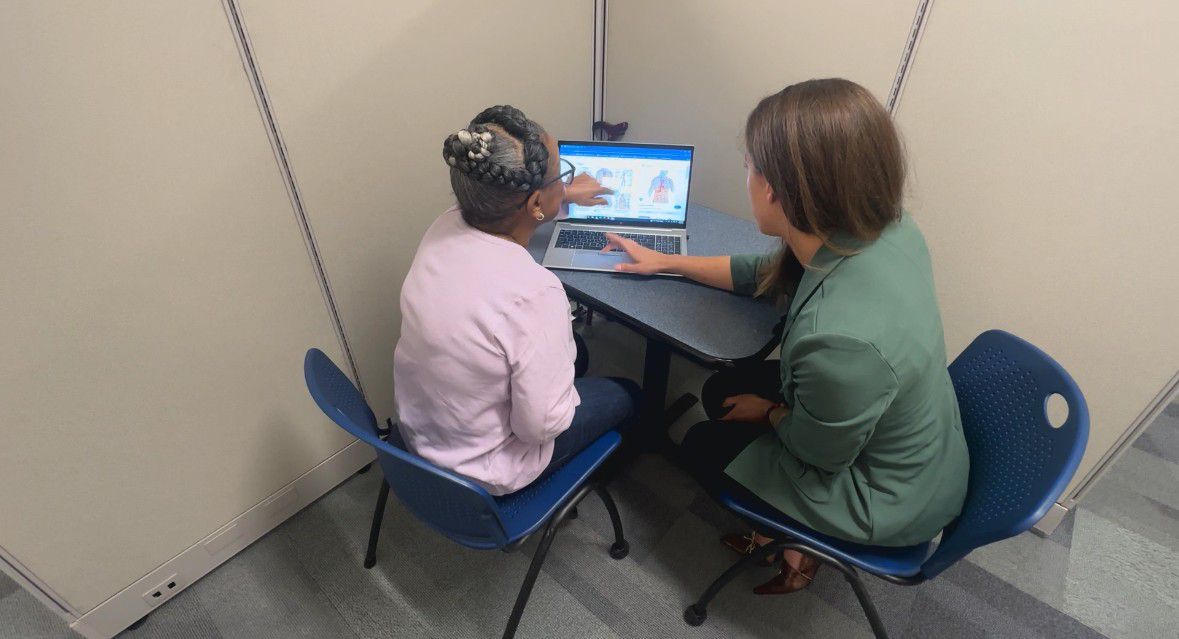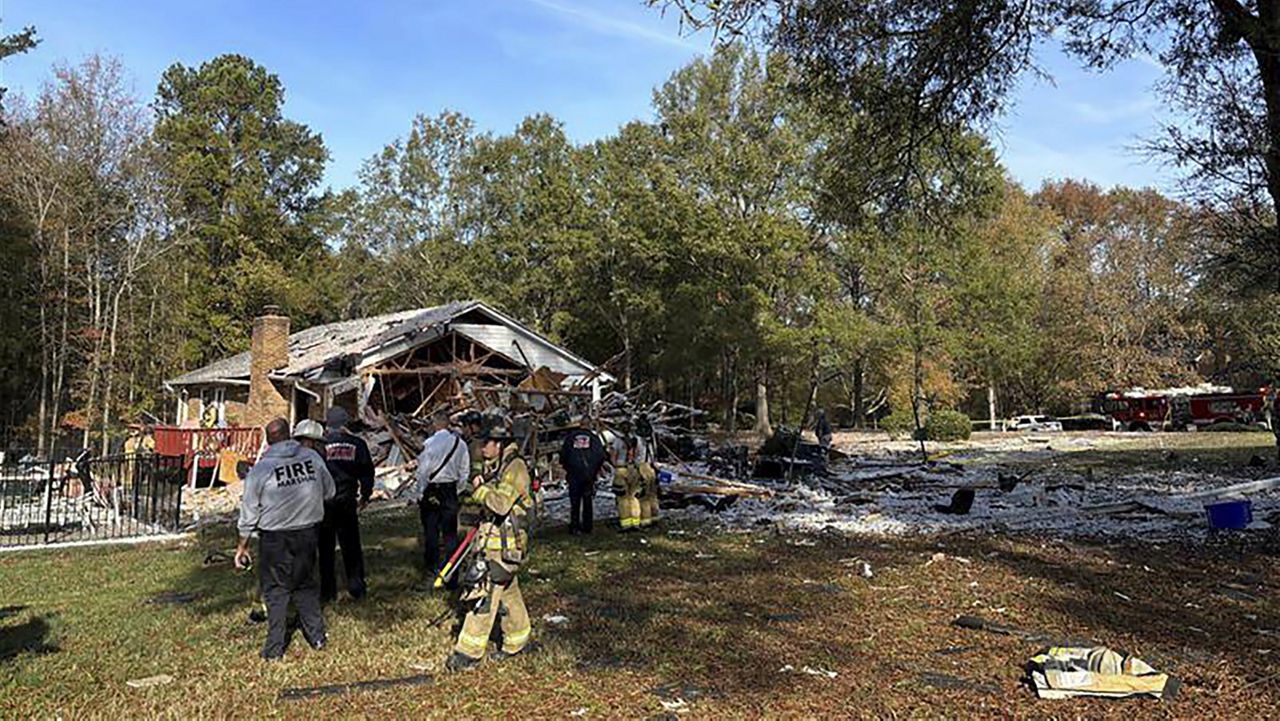UNION COUNTY, N.C. — Tempers are flaring among Union County’s political and business leaders over the county’s dwindling wastewater resources.
A late May resolution from the county’s chamber of commerce set off the latest clash, as the resolution described the shrinking wastewater capacity issue as a “crisis.”
Members of Union County’s Board of Commissioners disagreed with the chamber’s assessment and hit back during their Monday meeting.
However, the chamber’s resolution appeared to echo concerns shared by other elected leaders in Union County.
“We cannot meet our obligations to provide quality, public service to our residents, we cannot help protect their property values, or their way of life, if we don’t get expanded sewer capacity,” said Mayor Craig Horn of Weddington, when asked about the issue.
Horn stopped short of calling it a crisis, saying he preferred to describe the issue as “critical.”
Horn, who is in his second year as mayor of Weddington, said the town’s council had few development proposals to approve or deny in recent years because of a variety of factors. While the factors are wide ranging, including voter sentiment, long-term planning goals and many others, they also include a lack of wastewater and sewer capacity, according to Horn.
“We are dead in the water,” Horn said, referencing the town’s available capacity to send wastewater to 12 Mile Creek Water Reclamation Facility, just 10 minutes from Weddington’s town hall.
“There are some people in this community that would love to have a restaurant, a barber shop, a coffee shop. We can’t even do that, without access to sewer,” Horn added.
The county’s water headaches are a long-documented, much-discussed issue. Members of the public and some county commissioners strongly resisted a potential future wastewater treatment plant last year, saying it was not right for the planned area and had other negative impacts to the county.
Additionally, county residents in more rural parts of the county have expressed concern about using well water, and have instead requested access to the county’s water and sewer infrastructure. In Weddington, Horn said he has started to receive calls from residents concerned about their septic systems, requesting to be on the wastewater system instead.
“They want access to sewer, they want to hook up to sewer,” Horn said. “There isn’t any!”
Meanwhile, Union County’s Board of Commissioners was locked in its own back and forth with the chamber of commerce.
The chamber’s 2-page resolution, dated May 23, said, “Union County’s lack of wastewater capacity has become a crisis for business development.”
Additionally, the 2-page resolution said the county has no capacity to welcome new commercial or industrial development, county leaders do not have a plan to address the shortage, and said county leaders should prioritize future allocation to commercial and industrial development.
You can read the resolution in its entirety, here.
The resolution landed with a thud at commissioners’ offices.
“They may not like the plan, but that does not mean there is not a plan,” said Commission Chairman Stony Rushing on Monday night.
During the commissioners’ meeting, Rushing and some of his colleagues characterized the chamber’s resolution as a misguided, inaccurate portrayal of the water issue.
“Right now, there’s not a crisis in Union County over water and sewer,” Rushing added.
In his own written response to the chamber, Rushing laid out the county’s plan to address the issue. In part, Rushing said the county was considering many ways to increase wastewater capacity in the short and long term.
Those potential steps include expanding wastewater collection along the U.S. 74 corridor to encourage development, a small rate increase to fund capital projects, using reserves to avoid further rate hikes, and potential ballot items so voters could approve or deny a future bond to expand wastewater access.
In the letter, Rushing stated the measures listed above would likely be included in the county’s final budget for the new fiscal year.
During the meeting Monday night, Rushing and some of his colleagues also argued the county’s wastewater capacity was actually better in reality, than on paper. They claimed the county’s obligations and approved permits for wastewater capacity exceed actual use. For example, a developer with an approved permit for future wastewater capacity might never build, or the project would end up using less wastewater on average than the permit allows.
At times, the meeting grew contentious, especially after Rushing introduced a resolution to pull the board’s membership from the chamber and roughly $13,000 in funding.
“I don’t want to be part of an organization that sends out something like this,” Rushing said about the letter.
Other commissioners reacted strongly to Rushing’s proposal.
“I just — I tell you what, I’ve been on the board 10 and a half years. I’ve always been proud of it. I’m not right now,” said commissioner Richard Helms. Helms and commissioner David Williams said this was the latest example of Rushing and colleagues on commission, namely Melissa Merrell and Brian Helms, bullying and punishing dissenters in the county’s municipalities.
“Calling the chamber and going to see some of these towns is pure bullying tactics. To ‘Shut up,’ so you don’t talk about what kind of job you’re perceived as being done,” Richard Helms told Rushing, Merrell and Brian Helms.
“Dissent and disagreement is punished,” Williams added a few moments later. “I don’t like to talk this way, but if this passes this really is the height of nitwittery. And boy, have we seen some nitwittery these past few months. I’ll be voting against this motion, you can count on that,” Williams continued.
A few minutes later, Richard Helms and Rushing took the argument a step further.
“I’m proud to call my friends in the chamber, friends,” Helms began. “Because, they have the best interest of Union County, and they work at it.” Helms continued addressing Rushing, “Right after the primary last year you told me, ‘Richard you’re going to be neutered. You’re not going to be able to accomplish anything.’”
“Richard, that’s a damn lie,” Rushing replied. “That’s a damn lie. You might have heard it from [former commissioner Dennis Rape]. I don’t use the word neuter, I’d have said ‘castrate.’ That’s the word I use.” Eventually, the board voted 3-2 to end its membership in the county’s chamber of commerce and redirect the roughly $13,000 in funding to other projects. Richard Helms and Williams voted against the resolution.
You can watch the roughly 45-minute discussion here.
Despite the tension at the meeting, Mayor Horn said the issue needs to be addressed.
“If you can’t come to us with a commitment to capacity, we’re not going to approve it. And you’re not going to get a commitment to capacity, because there is no additional capacity available,” Horn claimed.
Weddington’s allotment at 12 Mile Creek is fully used, according to Horn.
Overall, the county has 5 water reclamation facilities and 70 pump stations. The county also contracts with Charlotte and Monroe for additional capacity.
For the future, commissioners are also reviewing the county’s master plan and potential need for more facilities, according to Rushing.
“I’ve learned more about sewer and septic than I ever wanted to know,” Horn added. “And we’ve discussed it more than we ever wanted to discuss it.”
In an update Thursday, a Union County spokesperson said the county does not allocate wastewater and sewer resources by municipality. Potential developments are reviewed on a case-by-case basis, according to the spokesperson.
Additionally, the spokesperson said connecting new customers to the water and sewer system is within the county’s authority, not individual towns and municipalities.








